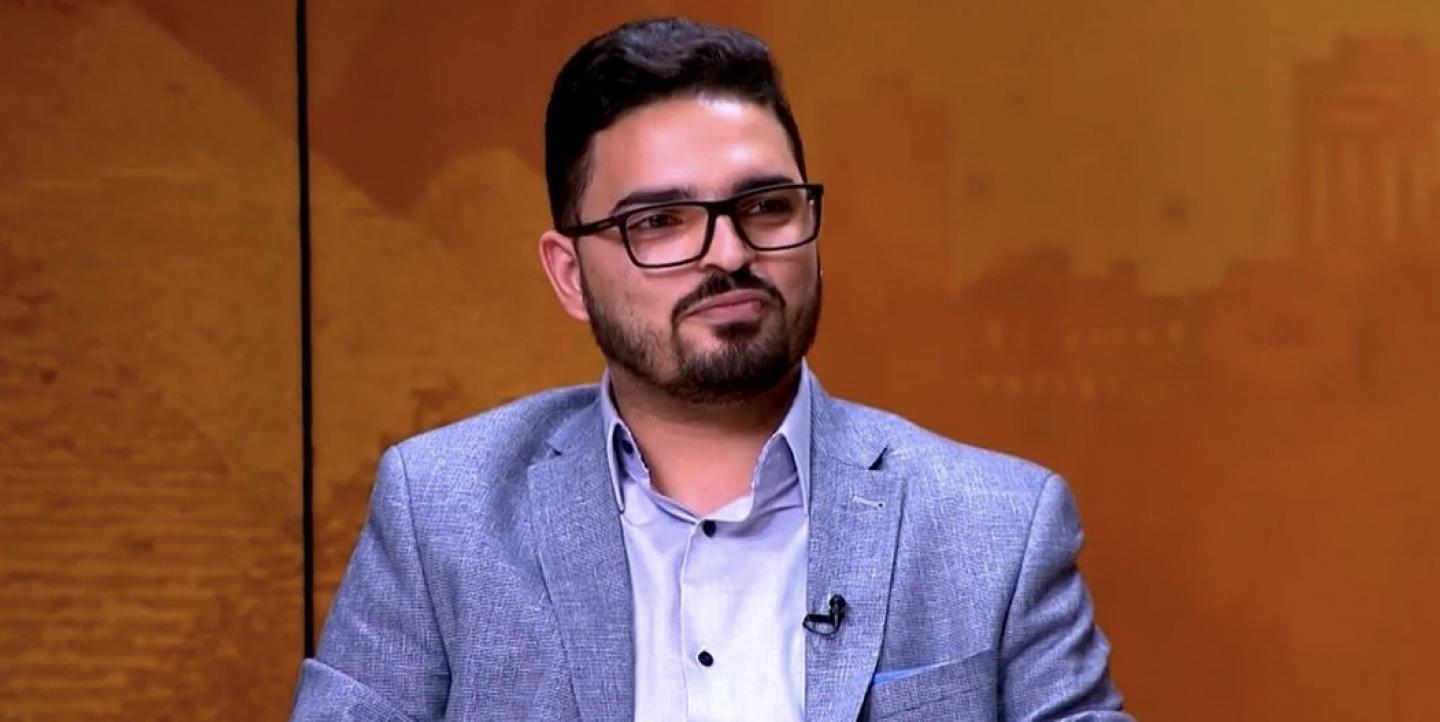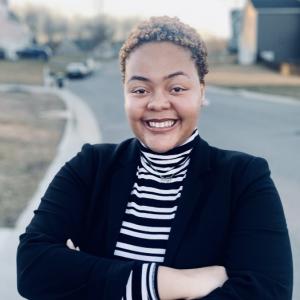As an aerospace engineering student a little over a decade ago, London-based producer and journalist Khaled Shalaby teamed up with other college students to report on parliamentary elections in Egypt, and to provide updates on the Tunisian Revolution. This is where his passion for reporting on communities in the Middle East and North Africa began.
“In 2010, we created a small Facebook group to film and report on what exactly was happening in the [Egyptian] elections, and to capture the arrests of activists who opposed the Mubarak regime,” said Shalaby.
Shalaby moved to the U.K. in 2017 to pursue engineering, leaving behind his work as a freelance reporter for various local news organizations and NGOs. However, he couldn’t shake his mind free from telling the stories of underrepresented communities. This led him down a different path.
“I found myself always working and thinking about a lot of topics, because in the Middle East region it’s a lot of news that needs to be covered,” said Shalaby. “I just couldn’t resist being a journalist and leaving my experience behind so I decided to switch my career to [focus on] journalism.”
For the past three years, Shalaby has worked as a multimedia reporter for Middle East Eye, where he covers politics, human rights, culture and history in the region. Throughout his career, he has also produced documentaries and talk-shows. While living in the U.K., he taught courses at the University of the Arts London on the intersection of activism and journalism, and how this impacts communities.
Here, Shalaby provides insight on his favorite projects he’s produced, the struggles of finding sources and ensuring their safety, and how IJNet has helped him become a better journalist.
[Read more: MENA-based journalists overcome challenges to report on refugees during COVID-19]
What has been your favorite project you’ve worked on and why?
My favorite is the last documentary I produced for Middle East Eye — [it] was the first documentary for the organization, called The Exiles. This documentary was an idea that I was thinking about a few years ago, especially after the revolution in Egypt.
We know what happened, and I think we know the events and all the perspectives politically and economically, but we don't know the people themselves. We didn't know what exactly happened to this generation. We are talking about thousands of young people who were potentially protesting, trying to make any kind of change and fighting the corruption in their countries. But in just a few years, they disappeared and no one knows about them.
It was a very honest and deep conversation between that generation and other people that might be interested in following up with what exactly is happening in the region. This story represents a lot of countries, not just Egypt.
What obstacles have you faced, and what motivates you to keep going?
When reporting on countries in the MENA region it’s very hard to find people who are willing to talk to the media because once you do, you will be targeted by the regime. It’s very serious, and we try our best to keep our sources confidential to protect them.
In Sudan, we have had to hide the faces of sources to protect them from the regime, and this makes it hard to reach them. It’s even harder trying to know how to report on these communities in a way that won’t cause any harm to the people who are living in these areas.
[Read more: Lessons learned from reporting on refugees during the pandemic]
You mentioned that you focus on covering issues that voice the concerns of communities in the Middle East. Why is this important to you?
This is something that I felt that I needed to do because there weren't a lot of media activists who were doing what we are doing. You see the official media from the government representing just one thing and ignoring everything else that is happening in the country. For me, it was important to report on the value of freedom and to be a voice for the voiceless — for the people who are suffering everyday, and who didn’t have anyone telling their stories.
That's why I got engaged in journalism. I want to highlight everyone’s story and their voices. I don’t care about their religion, their cultural background, their ethnicity, nothing — I just want to share their voices with the whole world, to represent what exactly happened to them.
How did the data journalism fellowship you found through IJNet help you as a journalist?
Data journalism is something that I found very interesting because of my engineering background. You have different randomized data that you have to collect and create a story from what you find.
Doing this program opened my mind to different kinds of journalism that I may want to do in the future. Until now, I didn’t finish my investigation because the most challenging part of it is figuring out how to verify your data in Egypt, which has limited resources.
What advice would you give other aspiring reporters who wish to work in the U.K.?
Don’t just listen to something without looking into it. You should always try to see and understand what exactly happened. Is it true or false? Right or wrong? It’s very easy for [misinformation] to explode everywhere without any limitations.
As journalists we have this principle that we need to know how to verify news and how to deliver the facts. We must reflect on what is happening everywhere, and try to do it neutrally and keep our opinions out of the story because you might have to cover something you don’t agree with.
Photo courtesy of Khaled Shalaby.


